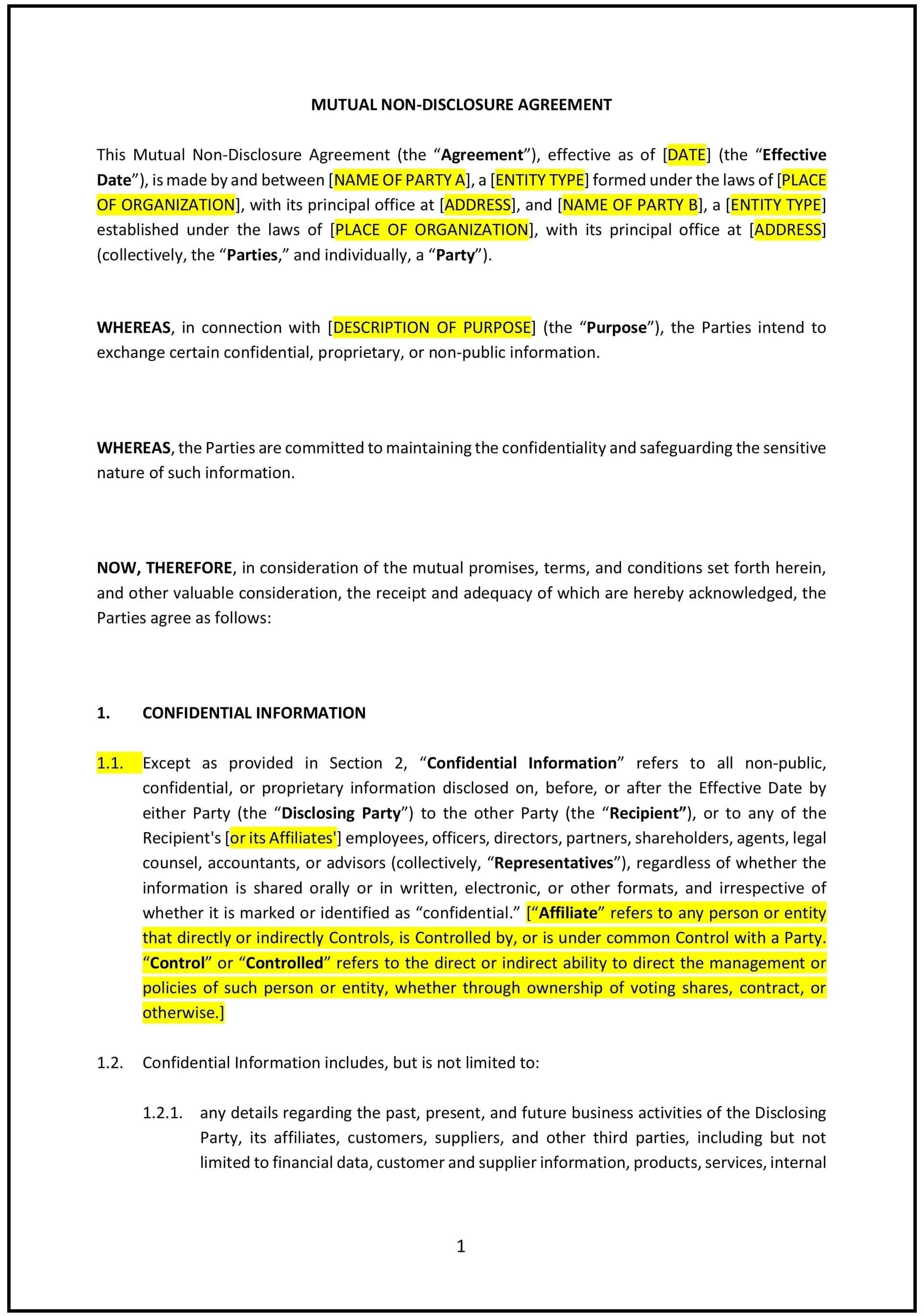Non-Disclosure Agreement (Mutual) (Washington): Free template
Got contracts to review? While you're here for contracts, let Cobrief make contract review effortless—start your free review now.

Customize this template for free
Non-Disclosure Agreement (Mutual) (Washington)
A Non-Disclosure Agreement (Mutual) in Washington is a legally binding contract that ensures both parties protect and do not disclose shared confidential information. This agreement is commonly used in business negotiations, partnerships, joint ventures, mergers and acquisitions, and collaborations where sensitive business data, trade secrets, or proprietary information are exchanged.
Washington businesses use mutual NDAs to protect valuable business information, reduce the risk of competitive leaks, and establish clear confidentiality obligations for both parties. Washington law recognizes and enforces NDAs when they are specific, reasonable in scope and duration, and compliant with the Washington Uniform Trade Secrets Act (WUTSA), which provides legal protections against the misappropriation of proprietary business information.
Industries such as technology, government contracting, healthcare, and professional services frequently rely on NDAs in Washington to safeguard intellectual property, customer data, and internal business strategies. A well-drafted NDA ensures that confidential information remains protected and provides businesses with legal recourse in case of a breach.
Tips for drafting and maintaining a Non-Disclosure Agreement (Mutual) in Washington
- Define confidential information clearly to avoid ambiguity and disputes over interpretation. Washington courts require specificity in NDAs for enforceability.
- Establish a reasonable duration for confidentiality obligations. While most NDAs last between two to five years, trade secrets may require indefinite protection under Washington law.
- Outline permitted disclosures, such as those required by law, court orders, or with prior written consent.
- Specify legal remedies for breaches, such as injunctive relief, financial damages, or termination of business relationships.
- Ensure compliance with the Washington Uniform Trade Secrets Act (WUTSA) to strengthen legal protections for confidential business information.